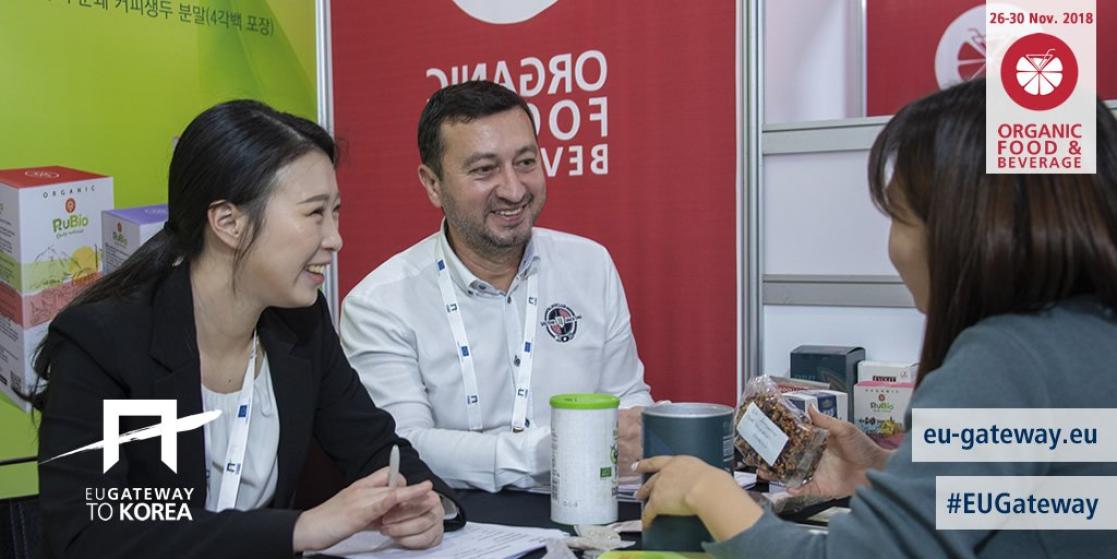43 EU Organic Processed Food Companies Visited Korea For EU Gateway Organic Food & Beverage Exhibition


43 EU Organic processed food companies visit Korea
EU Gateway Organic Food & Beverage exhibition held 26-30 November 2018
As consumers continue to seek healthier and more environmentally friendly food choices, the European Union (EU) hosted the EU Gateway Organic Food & Beverage Exhibition in Korea and showcased a variety of organic processed food and beverages from European producers.
According to the Delegation of the European Union to the Republic of Korea, this EU Gateway exhibition, which took place at the Seoul COEX InterContinental Hotel on November 27-28, hosted 43 European companies whose products have EU Organic Farming certification.
The diverse range of processed organic food and beverage products exhibited included confectionary, olive oils, vinegars, baby food, processed fruits and vegetables, sauces, dressings and condiments, bakery products, as well as organic soft drinks beer, wine and spirits.
Among some notable items were birch sap, renowned for its beneficial properties, hempseed powder, well-known as a superfood, organic and Fairtrade coffee and cocoa, Home Meal Replacement (HMR) such as sausages and nuggets made from organic chicken, ketchup for kids sweetened with apple syrup instead of sugar, and sugar-free, gluten-free, and allergen-free baby cereals.
The European organic market is worth € 21 billion (KRW 27.7 trillion) based on retail sales, ranking as the world's second largest market after the US (€ 38 billion). Moreover, per capita consumption of organic products in the EU is the world's highest.
More and more EU consumers are buying products that are produced with natural substances and processes.
The EU legislation on organic production and labelling of organic products addresses not just the product but the process, as the regulations state how products should be produced, labelled and controlled.
In the organic sector, the presence of the EU’s organic logo on the food label (the EU LEAF) guarantees EU rules on organic farming have been respected. It can only be used if the producer respects all the European rules on organic production including participation in an organic certification scheme that requires submitting to controls and annual inspections.
[The EU definition of organic farming: Organic production means a sustainable agricultural system respecting the environment and animal welfare, but also includes all other stages of the food supply chain.]
The EU follows the guidelines of the International Federation of Organic Agriculture Movements since 2008 and only certified organic products by the EU Organic Farming can use the organic EU LEAF mark.
